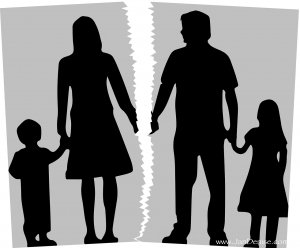 We instinctively want to shield children from trauma, which makes divorce a tough choice … but if your partnership is unhealthy, it also makes staying married a tough choice. You might find yourself trying to pick the lesser of two evils.
We instinctively want to shield children from trauma, which makes divorce a tough choice … but if your partnership is unhealthy, it also makes staying married a tough choice. You might find yourself trying to pick the lesser of two evils.
My husband and I lean in opposite directions — he toward the trauma of staying together; I toward the trauma of divorce. His parents divorced when he was very young; mine stayed together through thick and thin!
Your situation, of course, is unique, but you’re not alone. Fifty percent of first marriages and 67 percent of second marriages end in divorce. I believe some failing marriages can be saved … and I love to help revive them. Others, sadly, were unwisely entered into to begin with; and holding them together serves no one.
The ideal solution is for us to learn more about ourselves and relationships before committing for life! In the meantime, we have to make the best of what is.
If both partners want to save their marriage, it’s never too late for counseling. And if only one partner has the desire and the other one is willing to participate, there’s still hope.
One of the biggest challenges can be to reverse a decision that’s already been made to divorce. Why? Because letting go of hope and coming to grips with a divorce is one of the toughest parts … and once somebody has done that, and found hope elsewhere, divorce can feel like salvation, or even an easy escape.
It’s not, though. Even a divorce you want is traumatizing; and the ramifications, some of which are unforeseen, linger.
So, unless you’re literally running away from abuse, don’t rush a decision. And even after you’ve reached one, remember that getting divorced is like getting married, you can change your mind up until the very last minute.
And when there are children involved, it’s important to give them time to accept the idea. You may have contemplated divorce for the last six years, gradually getting used to the idea; but your child may feel like he’s been blindsided.
Put your own oxygen mask on first; but don’t forget your child needs one. Be present with your child to try to see what he sees, and feel what he feels. Be conscious of your own words and behaviors and choices, and how they affect your child today and tomorrow.
And depending on your child’s age and level of maturity, consider making him part of the process. No, a child can’t decide how you want to spend the rest of your life; but given a chance, he can give voice to his thoughts. And that can give you an opportunity to explore his emotions with him, before they’re overwhelming.
Remain a family — even if you decide to go through with a divorce, and even after it’s finalized. Sound impossible? It just might be more possible than raising a healthy, happy child without a family.
Here are some tips from Dr. Lisa Rene Reynolds, author of “Still a Family”:
~ Don’t criticize the other parent in front of a child;
~ Don’t fight in front of a child;
~ Don’t use your child as a spy;
~ Don’t use the child as a confidante;
~ Don’t force your child to choose sides;
Common sense, right? Let’s be honest, though — we don’t always do what we know makes sense. Choose consciously — even if you have to grit your teeth or pay another therapist.
Let the child remain a child with two loving parents. Don’t make the mistake of thinking that you can love the child and not the child’s parent. You don’t have to find a way to stay married. You do have to find a way to stay loving — toward the child and his other parent.
You can’t always shield your child from trauma, but you can always love him through it.
 Jan's program for the quest of a lifetime.
Jan's program for the quest of a lifetime. Are you ready to live your destiny?
Are you ready to live your destiny?